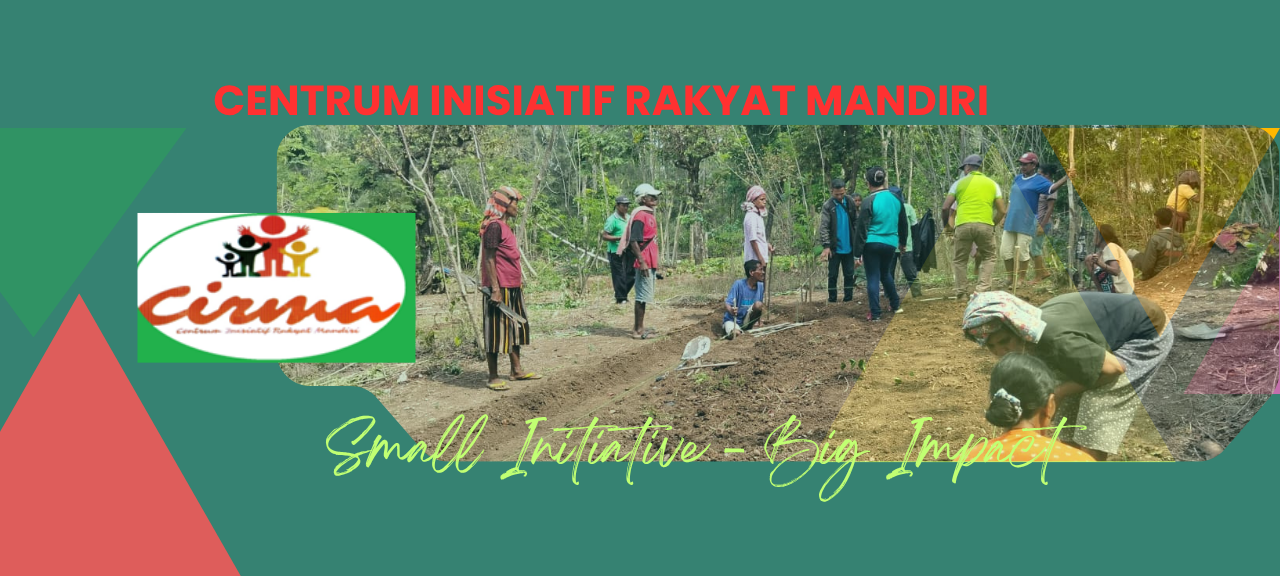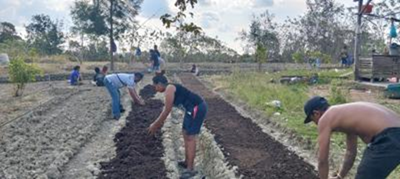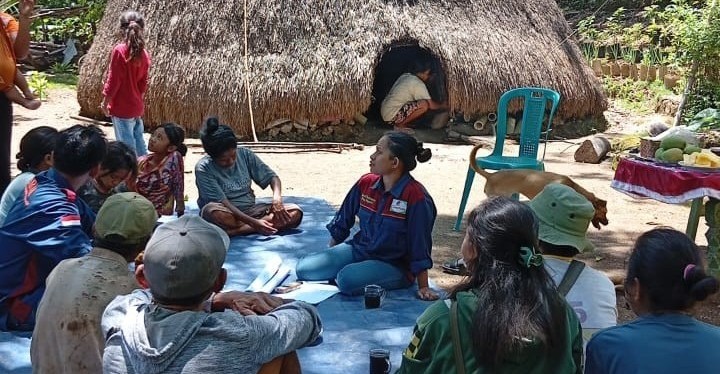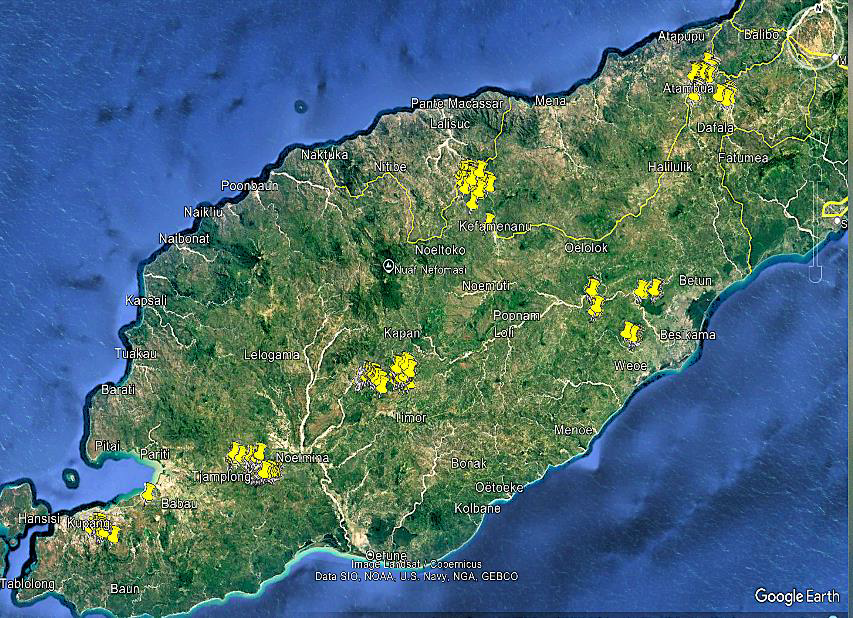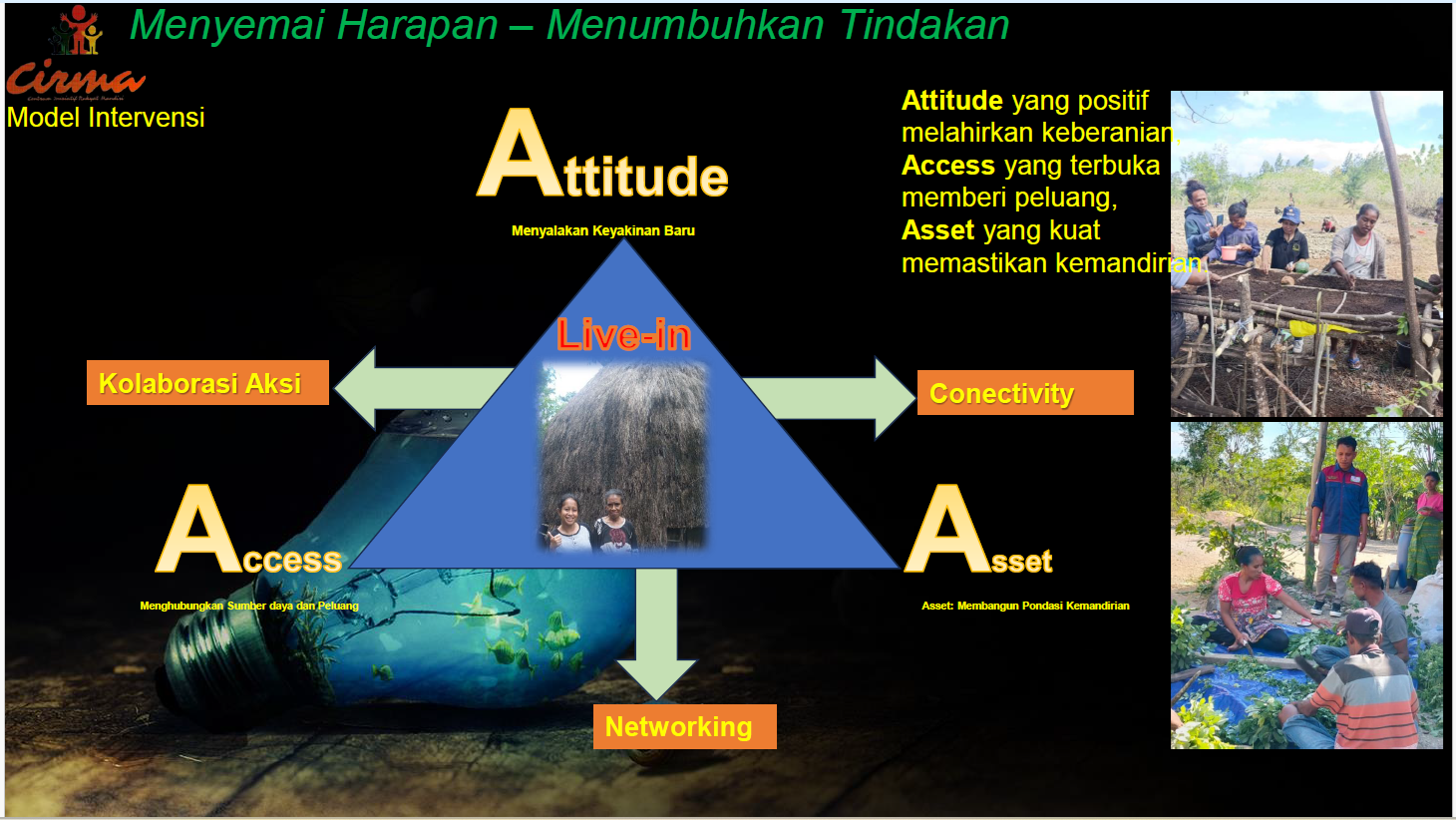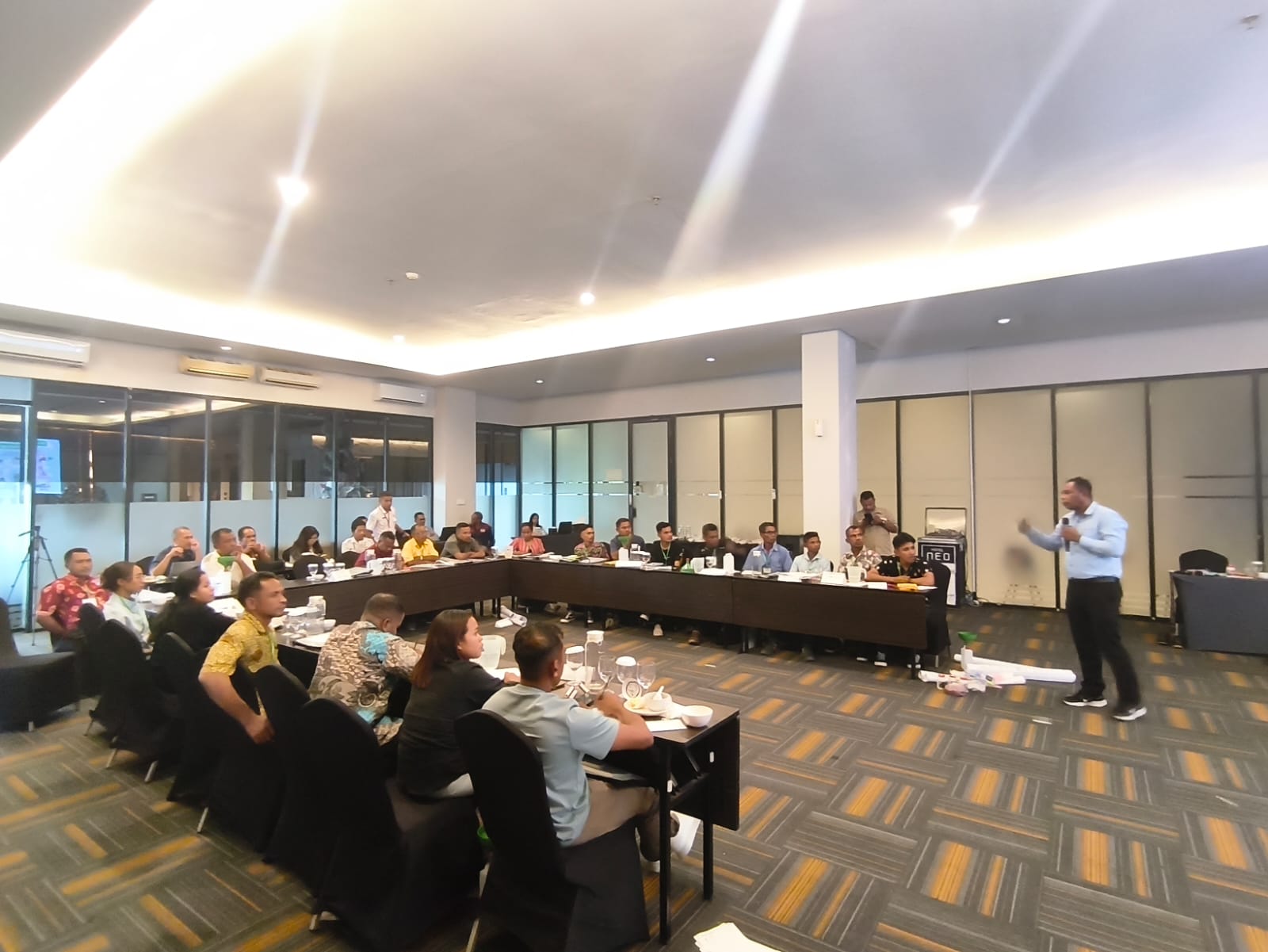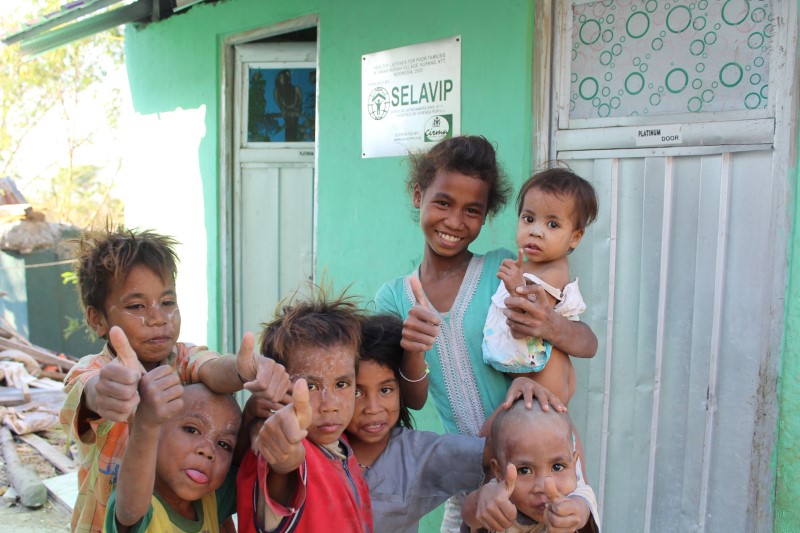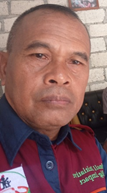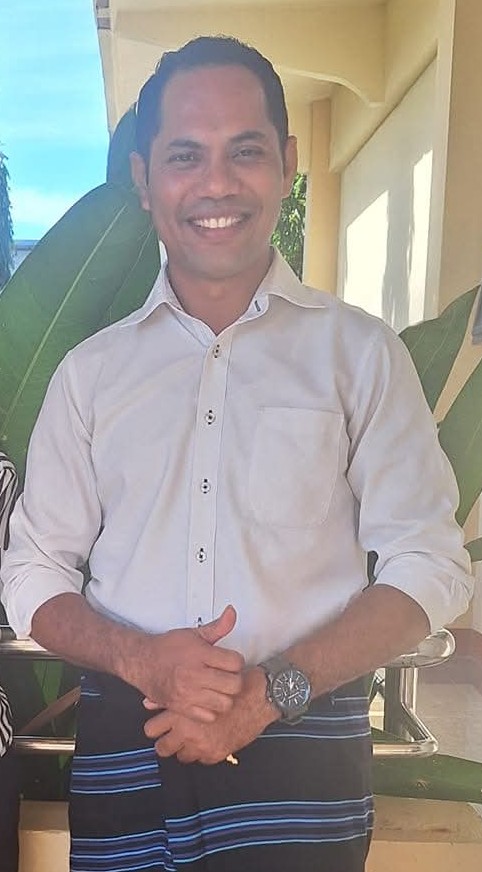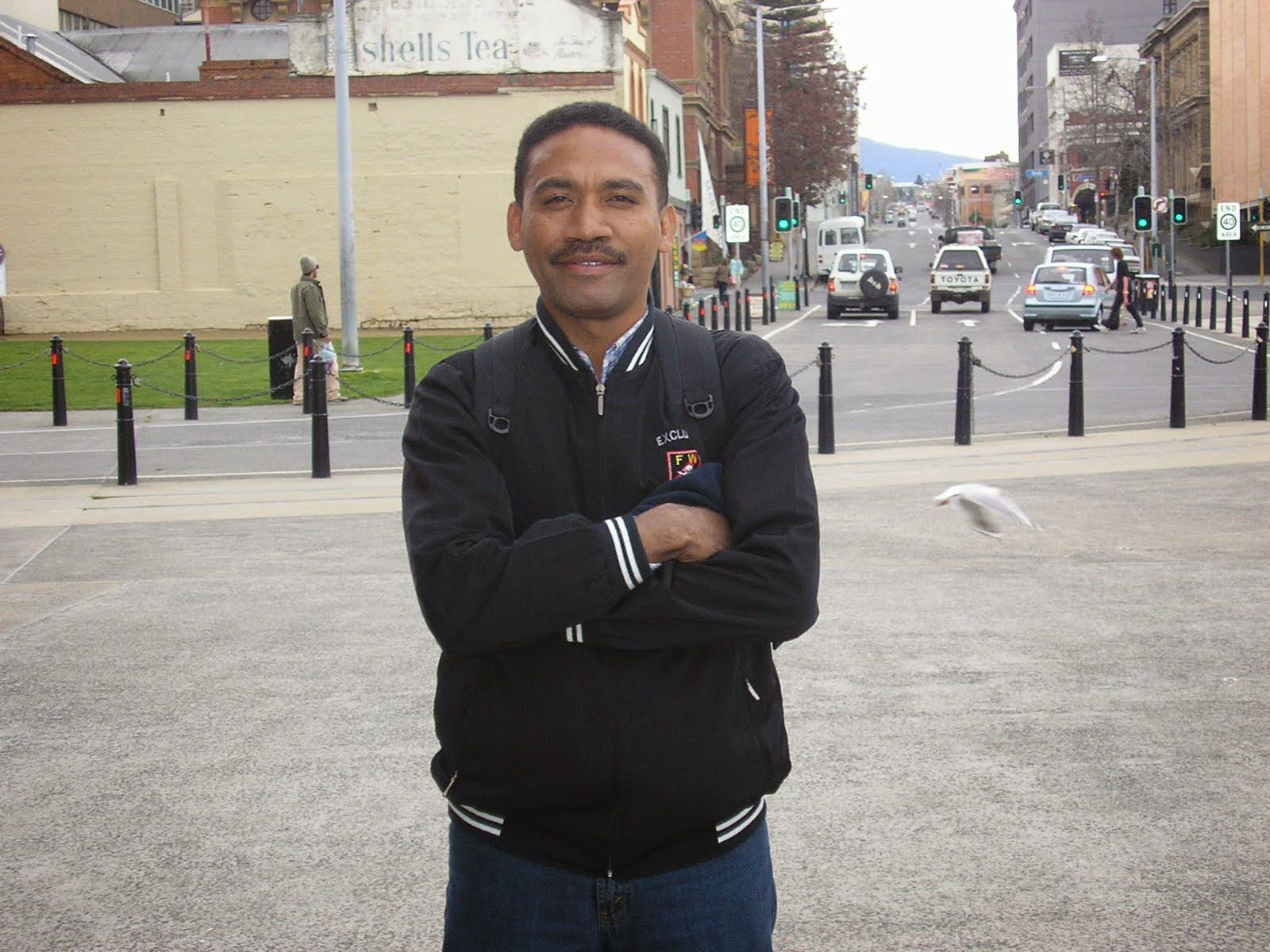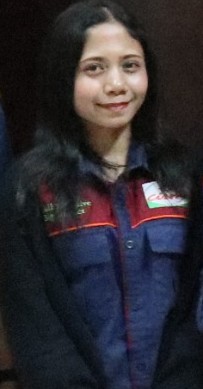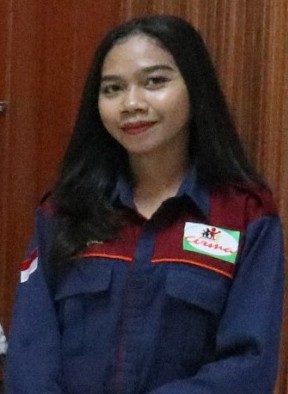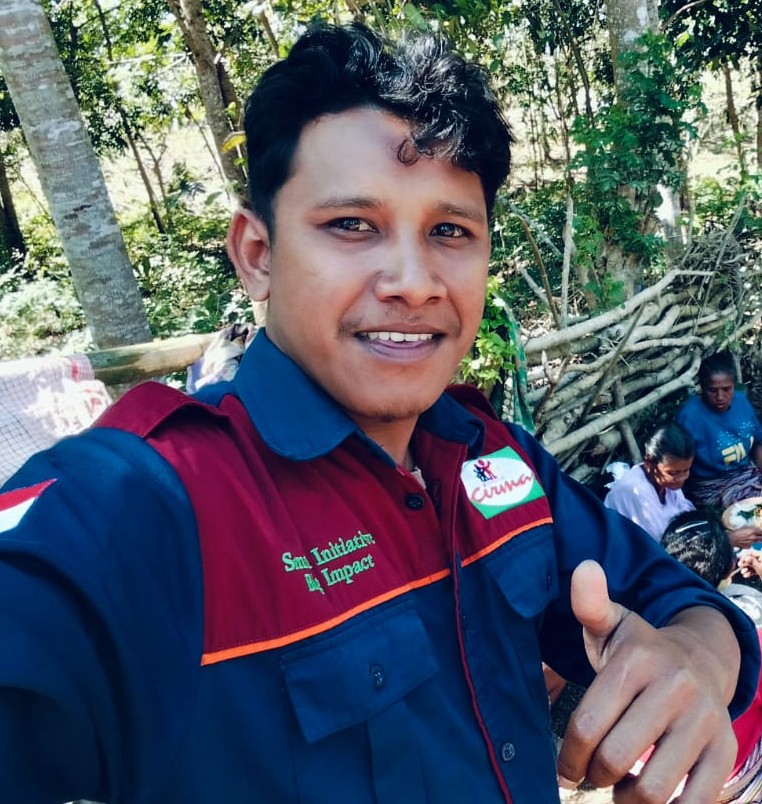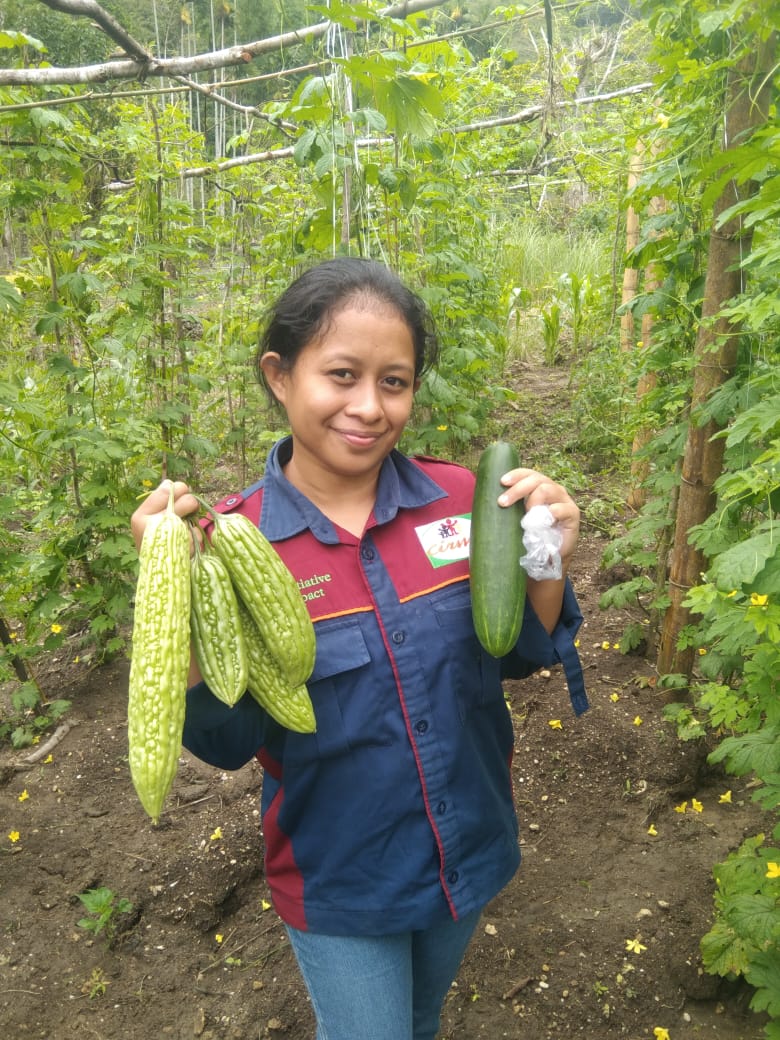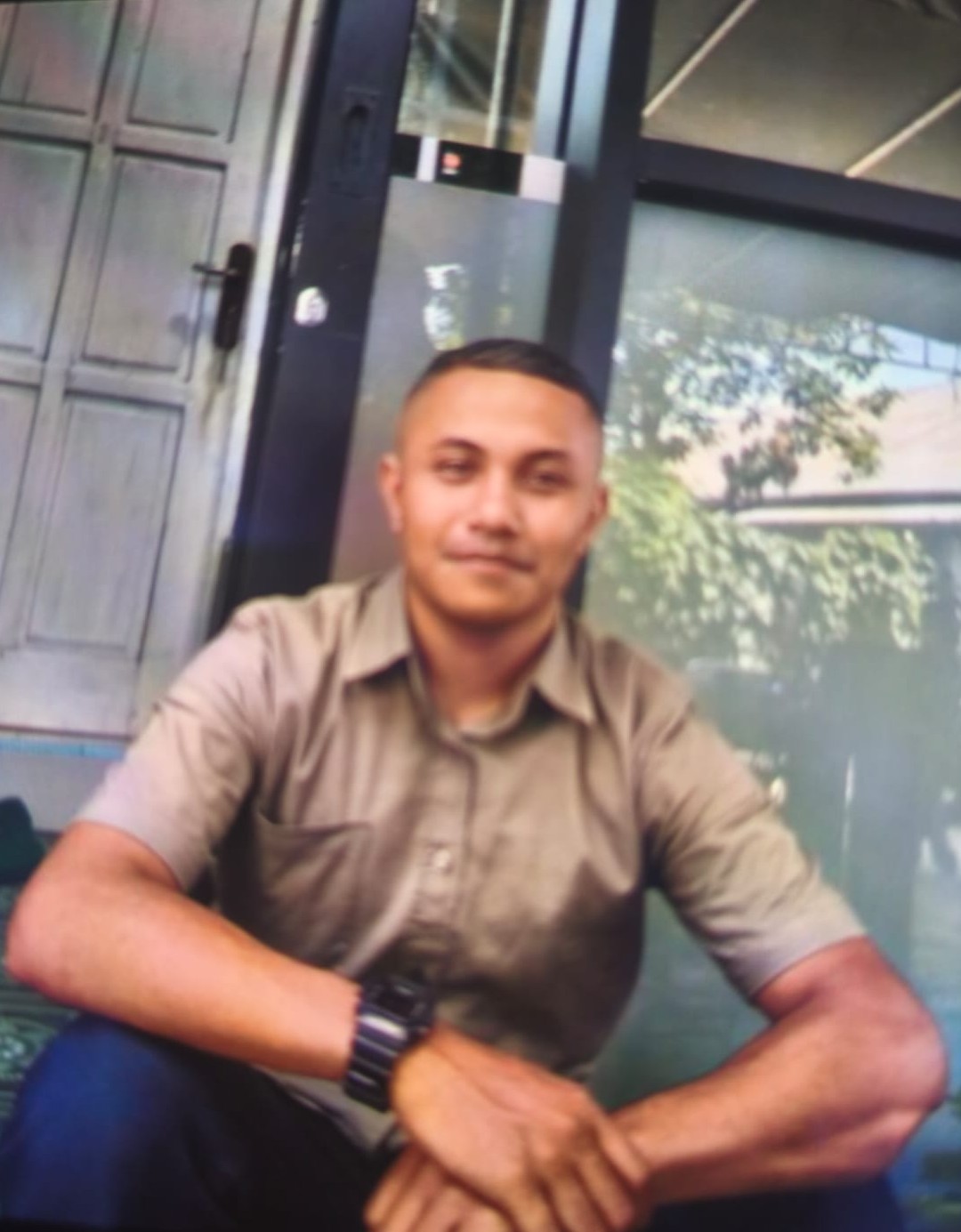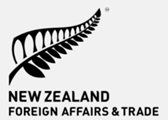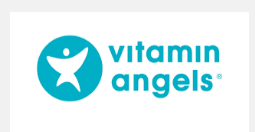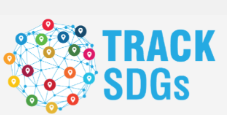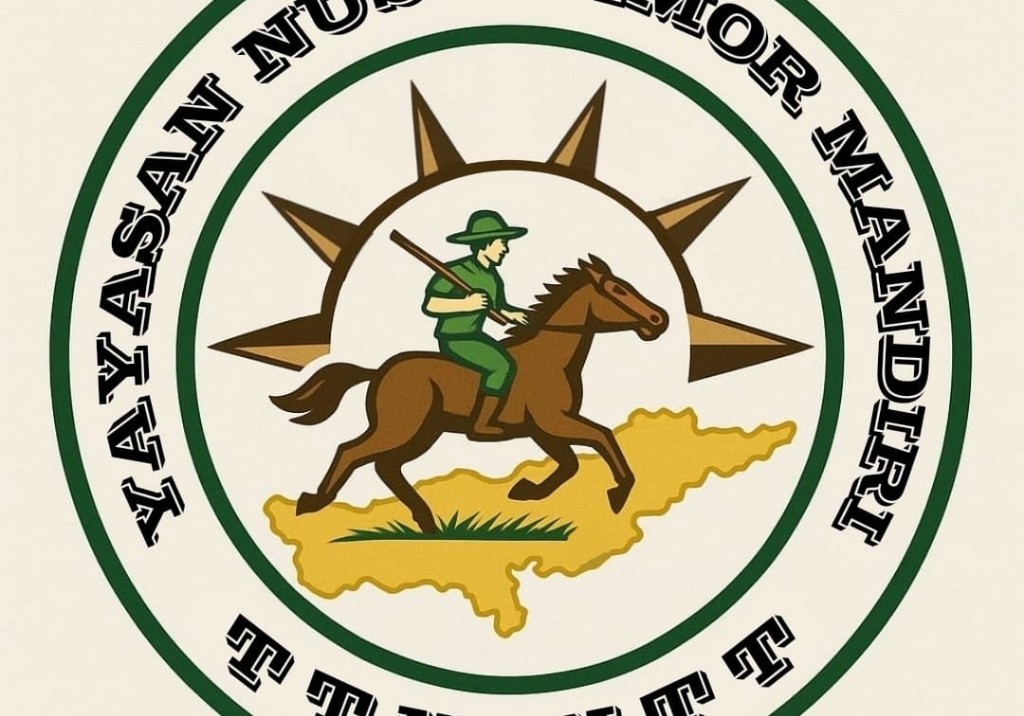Healthy Latrines for Extreme Poor Families: Restoring Dignity and Health from Tanah Merah and Oebelo
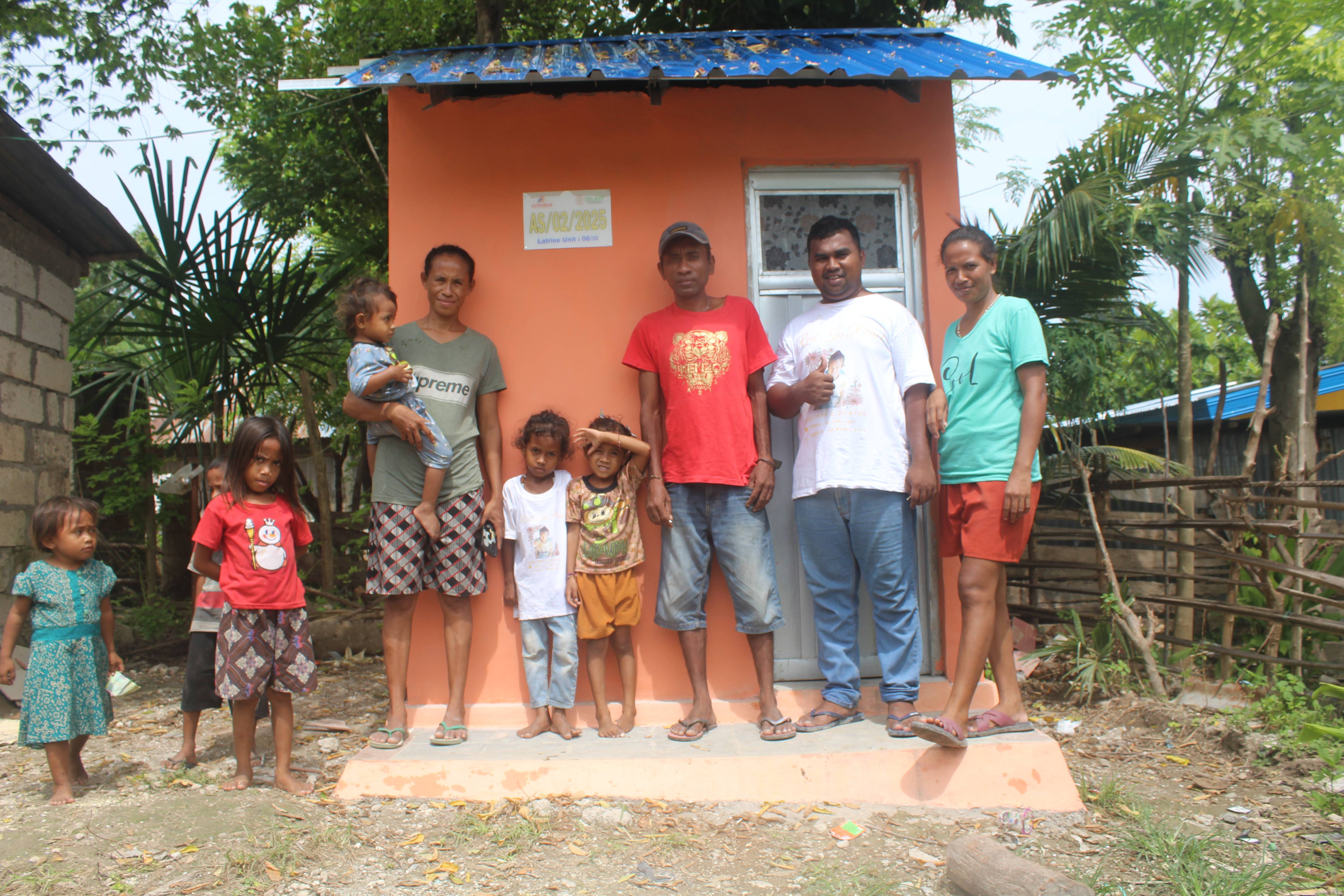 Amid rapid development, many rural families still lack access to proper sanitation. In Kupang District, particularly in Tanah Merah and Oebelo Villages, many extremely poor families live without healthy sanitation facilities. The absence of household latrines forces them to rely on open defecation in gardens, bushes, or even small rivers around the villages. This not only diminishes their quality of life but also increases the risk of diarrhea, skin infections, and even stunting in children. CIRMA believes that access to healthy sanitation is a basic human right, not a luxury reserved for certain groups. Through the Healthy Latrines for Extreme Poor Families program, CIRMA and local communities are working together to provide real solutions for extremely poor families in these two villages. The program goes beyond constructing physical latrines - it is a social movement to restore dignity, improve health, and build collective awareness of the importance of proper sanitation.
The program is grounded in the philosophy of community-driven change, where residents are involved from planning to implementation. Beneficiary families are identified through community assessments and dialogues to ensure that interventions reach those most in need. Field facilitators provide intensive assistance, including education on clean and healthy living practices, the importance of handwashing with soap, and sustainable latrine maintenance. This intervention model does not only focus on providing physical facilities but also on shaping new Attitudes within the community. By recognizing that a healthy latrine is a long-term investment in family health, residents are slowly overcoming the stigma that sanitation is merely a private matter. The healthy latrine becomes a symbol of collective behavioral change, affirming that even extremely poor families deserve to live in health and dignity.
In addition to changing attitudes, the program expands Access for extremely poor families to affordable sanitation technology. By partnering with local builders and community groups, latrine designs are kept simple, easy to maintain, and compliant with health standards. This ensures that poor families are no longer hindered by high costs or technical barriers when building sanitation facilities. Equally important is strengthening the community’s social and economic Assets. The program fosters a culture of mutual cooperation, where villagers help each other construct latrines. Local builders gain additional income, while women’s groups are empowered to educate fellow mothers about hygiene and healthy living practices. Thus, latrines become not only individual property but also part of the village’s collective assets that sustain better quality of life.
Since 2020, this initiative has been supported by SELAVIP Chile, an international organization committed to housing and sanitation solutions for poor families across the globe. With SELAVIP’s support, CIRMA and local communities have built 300 healthy latrines in Tanah Merah and Oebelo, now serving nearly 500 poor households. This achievement is more than just numbers—it is living proof that cross-border collaboration can address the most basic needs of extremely poor communities.The initial impacts of the Healthy Latrines program are becoming visible. In Tanah Merah, beneficiary families no longer feel ashamed when visitors come, as they now have healthy latrines at home. Children are less frequently affected by diarrhea because their surroundings are cleaner. In Oebelo, villagers are inspired to build simple self-funded latrines after witnessing the changes experienced by program beneficiaries.
Beyond physical infrastructure, the program has fostered renewed confidence and dignity among extremely poor families. They feel recognized and valued, no longer excluded from a decent standard of living. The presence of healthy latrines has become a gateway for wider change, including greater awareness of environmental health, improved family hygiene practices, and stronger social solidarity at the village level. For CIRMA, the success of the Healthy Latrines program in Tanah Merah and Oebelo is only the first step toward broader transformation. Healthy sanitation is just one small doorway in the long struggle against extreme poverty and social injustice. Yet through this small doorway emerges new hope—that change begins with simple, everyday interventions that touch people’s lives directly.
Looking ahead, CIRMA envisions expanding this initiative to more villages across Kupang District and West Timor. Because sanitation is not merely about infrastructure—it is about human dignity, the health of future generations, and building the foundation for a more just life. Healthy Latrines for Extreme Poor Families is more than a program. It is a movement—a movement to humanize life, restore basic rights, and ignite hope from small villages at the nation’s frontier. From simple latrines, we are writing a larger story of humanity.
Amid rapid development, many rural families still lack access to proper sanitation. In Kupang District, particularly in Tanah Merah and Oebelo Villages, many extremely poor families live without healthy sanitation facilities. The absence of household latrines forces them to rely on open defecation in gardens, bushes, or even small rivers around the villages. This not only diminishes their quality of life but also increases the risk of diarrhea, skin infections, and even stunting in children. CIRMA believes that access to healthy sanitation is a basic human right, not a luxury reserved for certain groups. Through the Healthy Latrines for Extreme Poor Families program, CIRMA and local communities are working together to provide real solutions for extremely poor families in these two villages. The program goes beyond constructing physical latrines - it is a social movement to restore dignity, improve health, and build collective awareness of the importance of proper sanitation.
The program is grounded in the philosophy of community-driven change, where residents are involved from planning to implementation. Beneficiary families are identified through community assessments and dialogues to ensure that interventions reach those most in need. Field facilitators provide intensive assistance, including education on clean and healthy living practices, the importance of handwashing with soap, and sustainable latrine maintenance. This intervention model does not only focus on providing physical facilities but also on shaping new Attitudes within the community. By recognizing that a healthy latrine is a long-term investment in family health, residents are slowly overcoming the stigma that sanitation is merely a private matter. The healthy latrine becomes a symbol of collective behavioral change, affirming that even extremely poor families deserve to live in health and dignity.
In addition to changing attitudes, the program expands Access for extremely poor families to affordable sanitation technology. By partnering with local builders and community groups, latrine designs are kept simple, easy to maintain, and compliant with health standards. This ensures that poor families are no longer hindered by high costs or technical barriers when building sanitation facilities. Equally important is strengthening the community’s social and economic Assets. The program fosters a culture of mutual cooperation, where villagers help each other construct latrines. Local builders gain additional income, while women’s groups are empowered to educate fellow mothers about hygiene and healthy living practices. Thus, latrines become not only individual property but also part of the village’s collective assets that sustain better quality of life.
Since 2020, this initiative has been supported by SELAVIP Chile, an international organization committed to housing and sanitation solutions for poor families across the globe. With SELAVIP’s support, CIRMA and local communities have built 300 healthy latrines in Tanah Merah and Oebelo, now serving nearly 500 poor households. This achievement is more than just numbers—it is living proof that cross-border collaboration can address the most basic needs of extremely poor communities.The initial impacts of the Healthy Latrines program are becoming visible. In Tanah Merah, beneficiary families no longer feel ashamed when visitors come, as they now have healthy latrines at home. Children are less frequently affected by diarrhea because their surroundings are cleaner. In Oebelo, villagers are inspired to build simple self-funded latrines after witnessing the changes experienced by program beneficiaries.
Beyond physical infrastructure, the program has fostered renewed confidence and dignity among extremely poor families. They feel recognized and valued, no longer excluded from a decent standard of living. The presence of healthy latrines has become a gateway for wider change, including greater awareness of environmental health, improved family hygiene practices, and stronger social solidarity at the village level. For CIRMA, the success of the Healthy Latrines program in Tanah Merah and Oebelo is only the first step toward broader transformation. Healthy sanitation is just one small doorway in the long struggle against extreme poverty and social injustice. Yet through this small doorway emerges new hope—that change begins with simple, everyday interventions that touch people’s lives directly.
Looking ahead, CIRMA envisions expanding this initiative to more villages across Kupang District and West Timor. Because sanitation is not merely about infrastructure—it is about human dignity, the health of future generations, and building the foundation for a more just life. Healthy Latrines for Extreme Poor Families is more than a program. It is a movement—a movement to humanize life, restore basic rights, and ignite hope from small villages at the nation’s frontier. From simple latrines, we are writing a larger story of humanity.
0 Komentar
Isi Komentar
CIRMA: Making a Real Impact for the Poorest Community
Project
Improving Toilets for Displaced People
2025-2026Donatur: SELAVIP CHILE
CIRMA proposed an initiative to construct 30 household sanitation toilets for 30 poor families living in the Los Palos resettlement area of Oebelo Vil...
Empowering West Timor: Advancing Climate Justice
2025-2027Donatur: CJRF - USA (Climate Justice Resilience Fund)
Title : “Empowering West Timor: Advancing Climate Justice and Community Resilience for Rural Smallholder Farmers”. Background & Context We...
Healthy Latrines for Frontier Poorest Households
2025-2026Donatur: SELAVIP CHILE
SELAVIP Foundation was created by the Belgian priest Josse van der Rest Emsens sj (1924 – 2020) being its concern and main mission to help the most...
Improving Access for Poor Families to Clean Water
2024-2025Donatur: Japan Water Fund
Through the support of the Japan Water Fund (JWF), CIRMA is implementing a program to revitalize the clean water installation and distribution network...
Video Gallery

WASH

Testimoni

Clean Water Access

Testimoni

MENDORONG PEMANFAATAN SAMPAH ORGANIK UNTUK KOMPOS EKO ENZIM DI KOTA KUPANG BERSAMA CIRMA INDONESIA

AYUB TITU EKI APRESIASI CIRMA, JOHN M. LADJAR: CIRMA JADIKAN PETANI KECIL PAHLAWAN KETAHANAN PANGAN
Photo Gallery
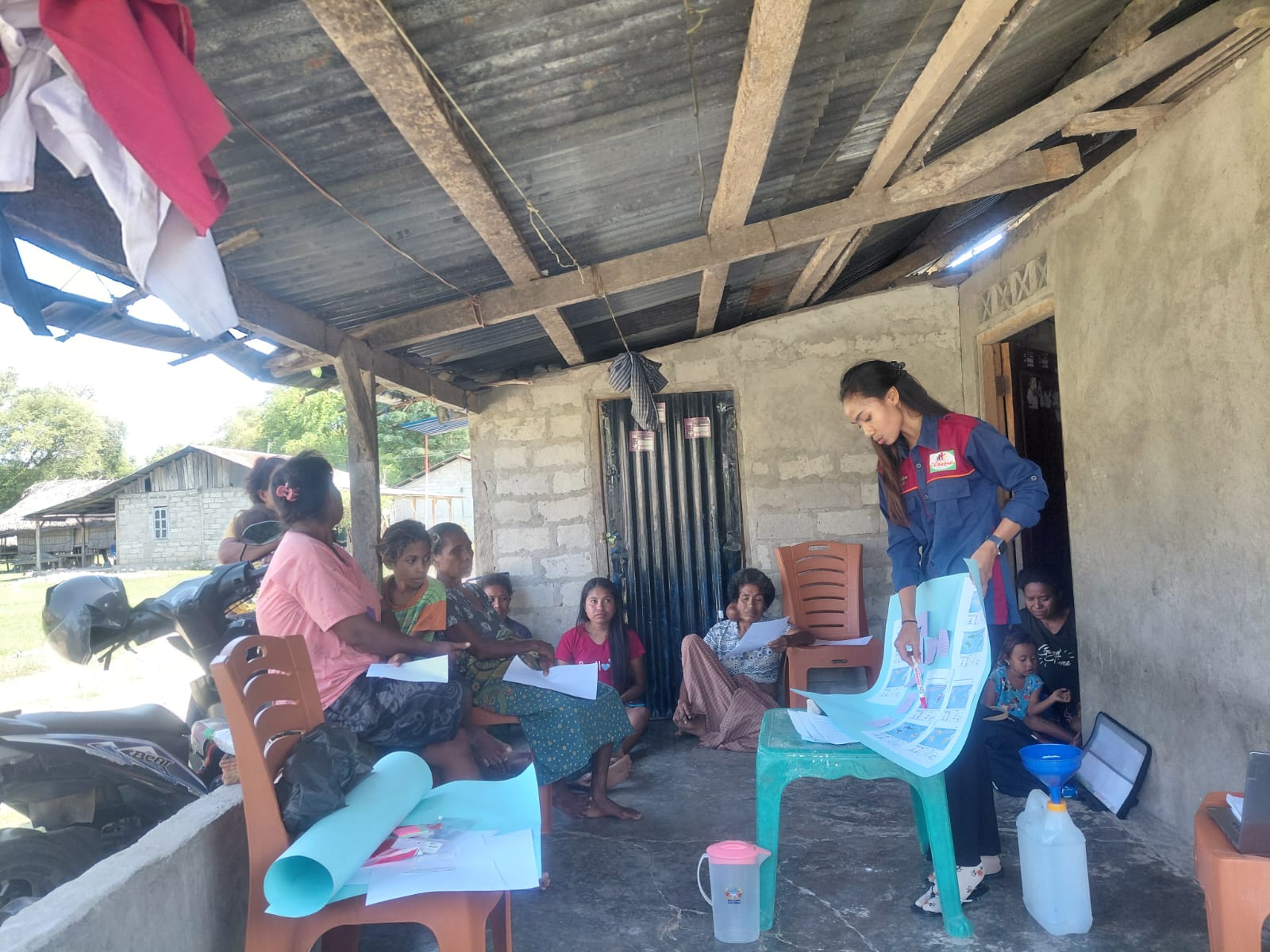
Climate Learning Series
09 Dec 2025
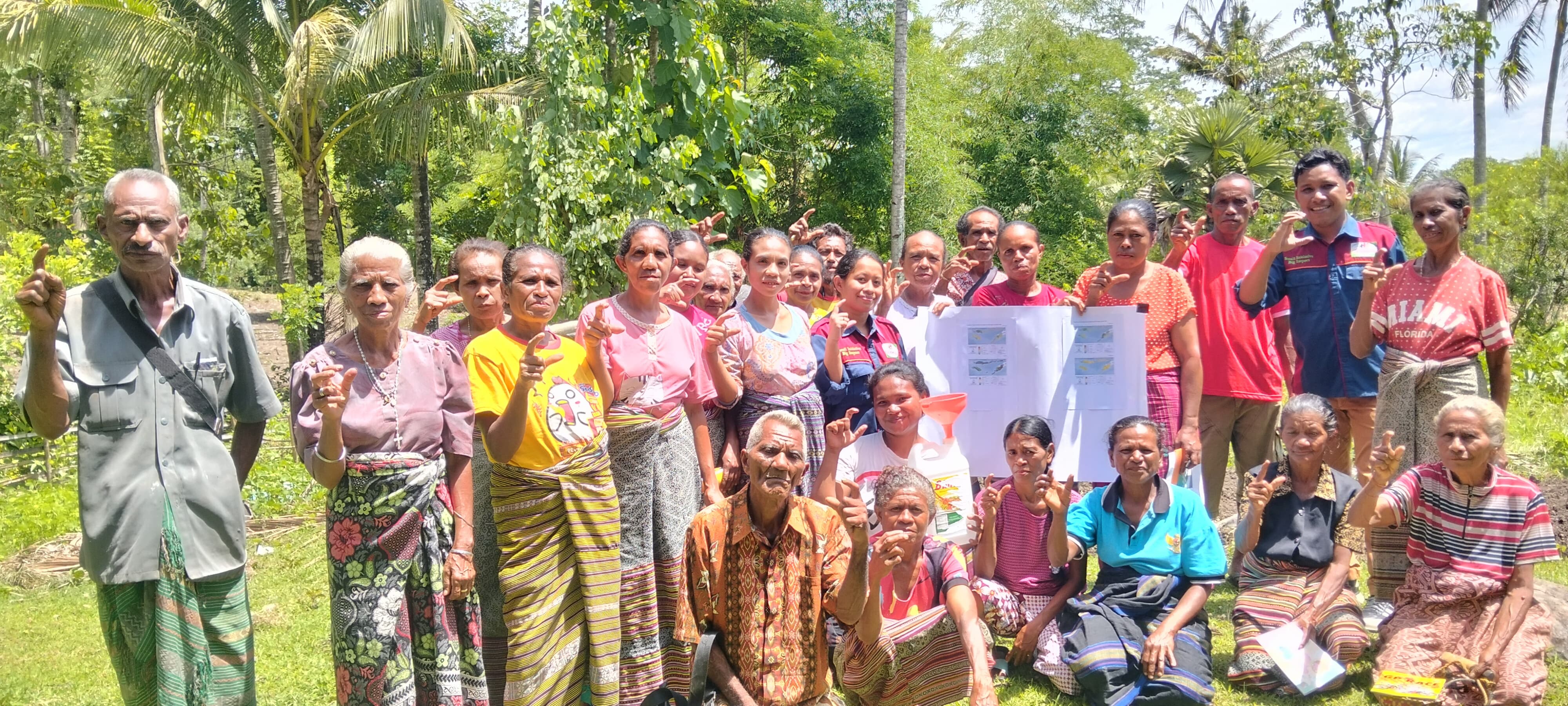
Climate Learning Series
09 Dec 2025
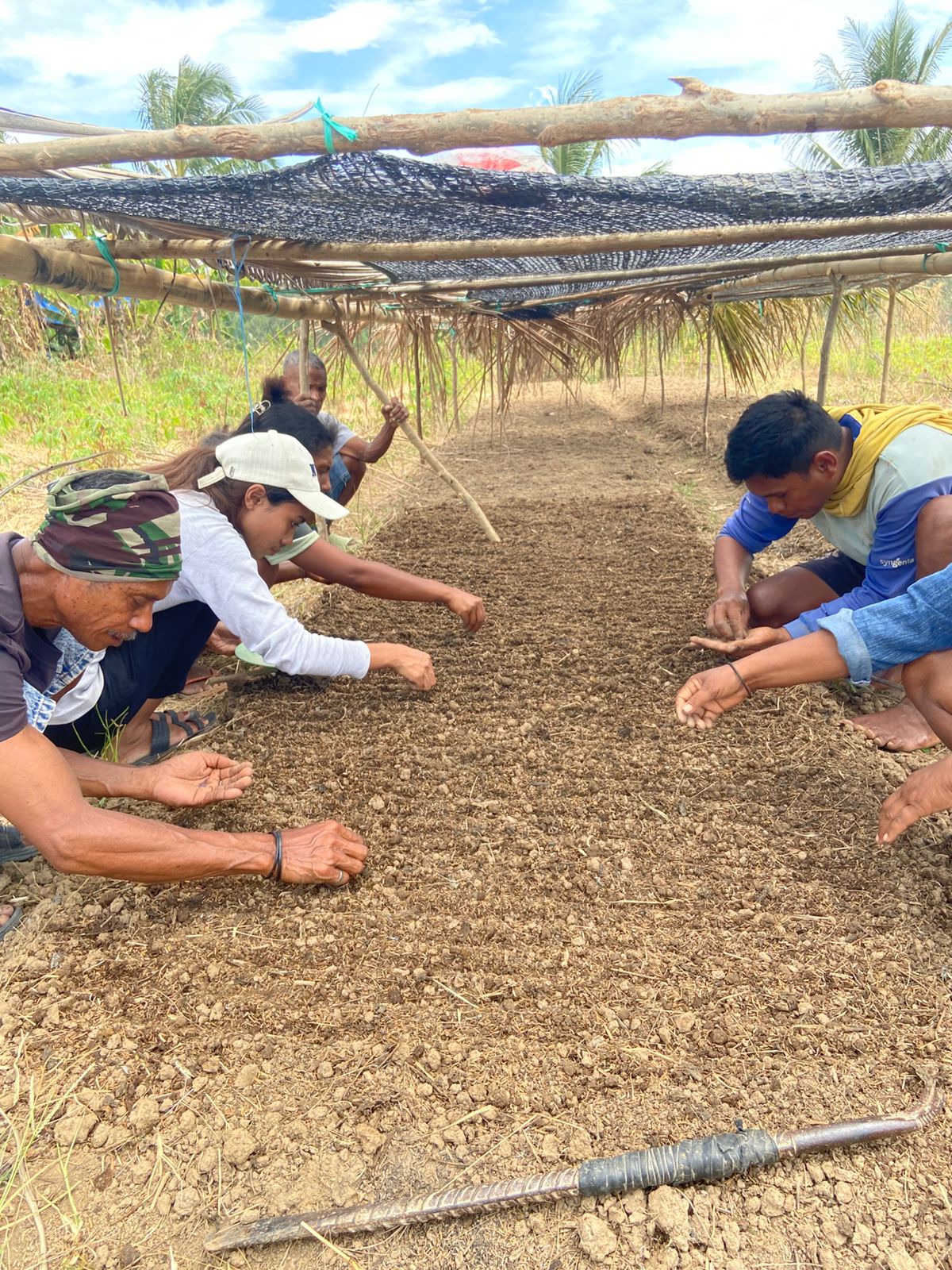
Sowing Hope
08 Dec 2025
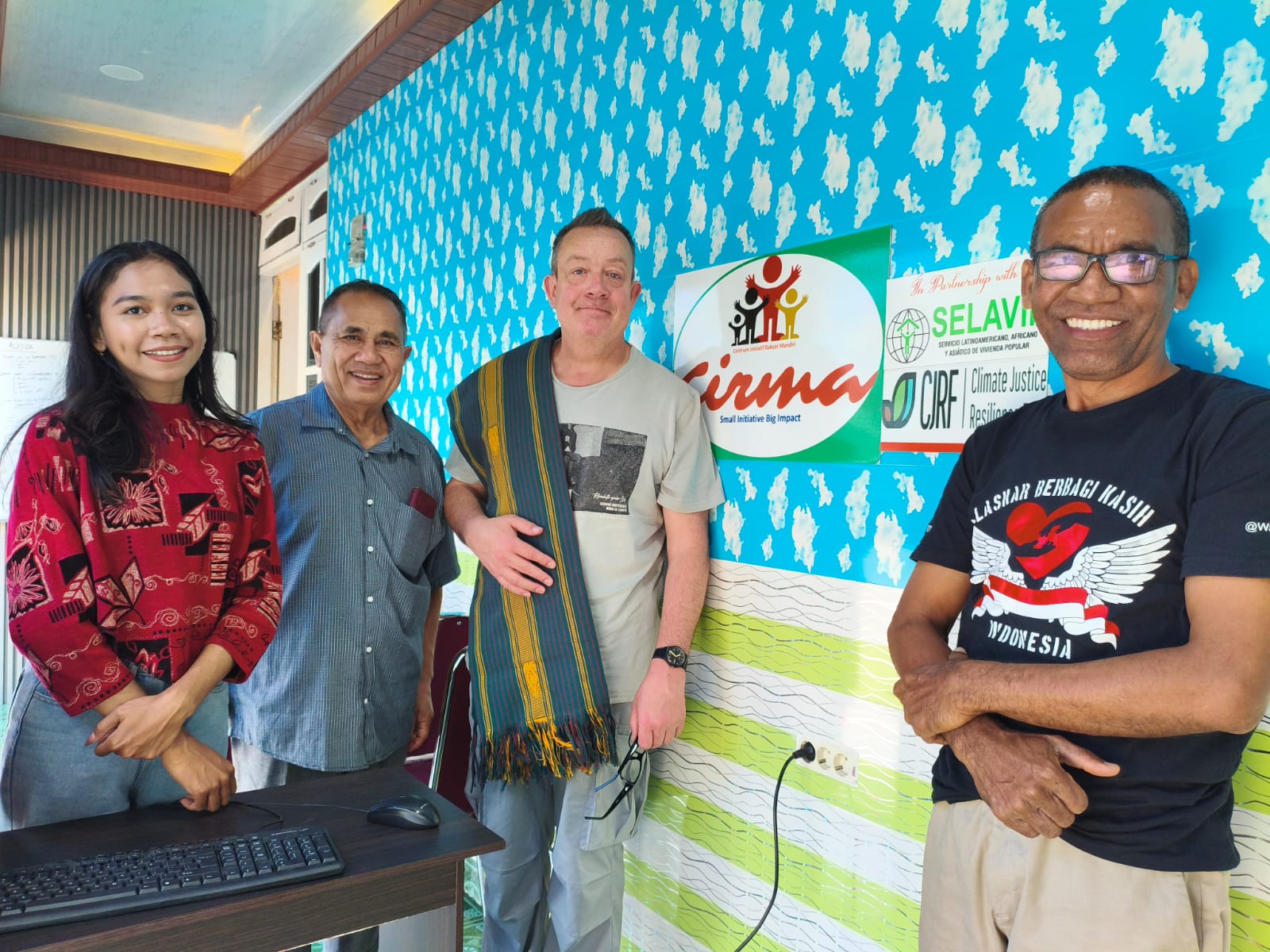
SELAVIP Visits CIRMA, 2025
02 Dec 2025
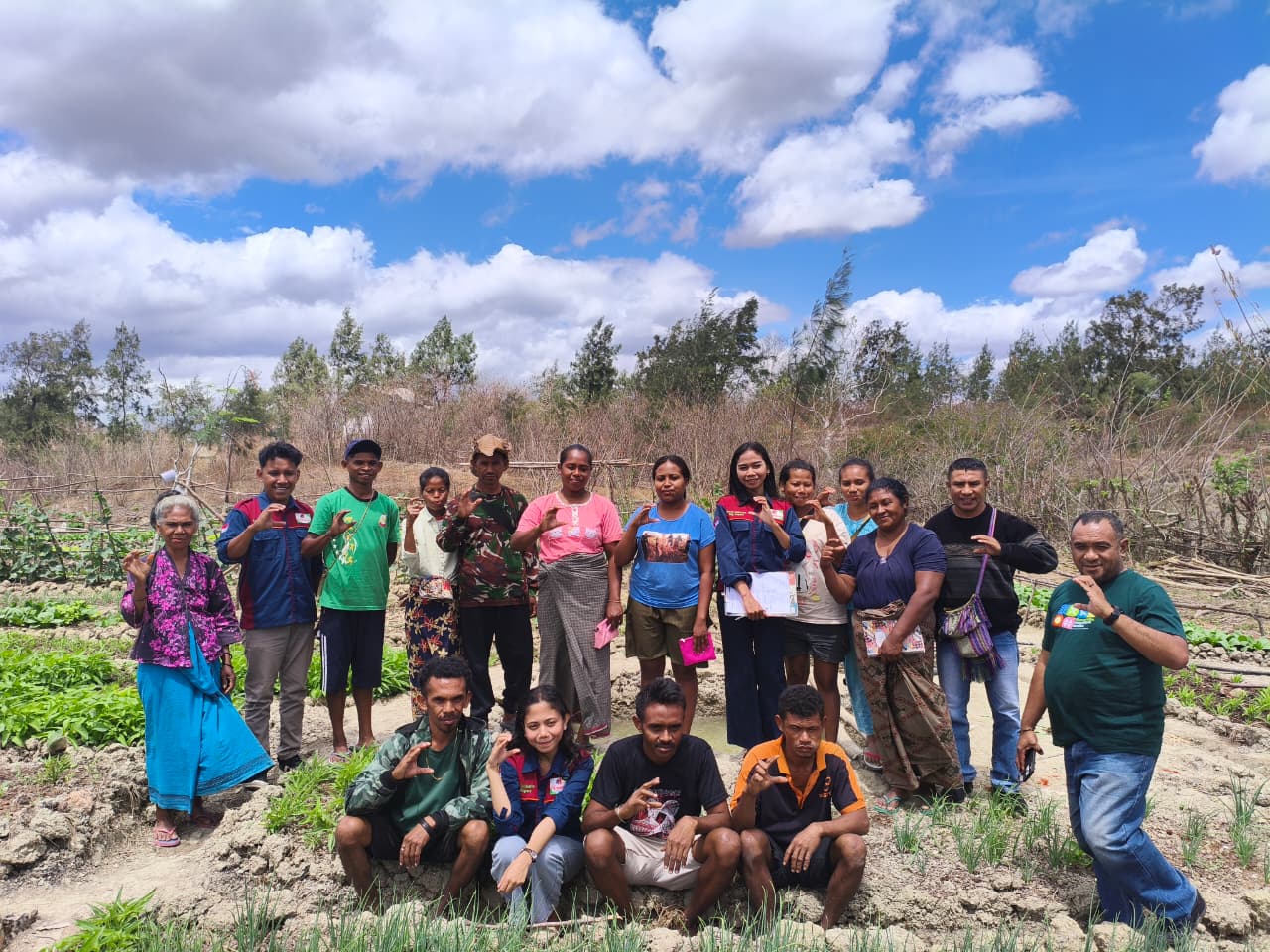
Demplot
02 Dec 2025
Community Voice/Suara Komunitas
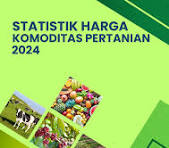
Kesenjangan harga jual antara petani dan konsumen akhir
Kesenjangan harga antara petani dan konsumen menggambarkan ironi pahit dalam rantai pangan. Petani menjual gabah atau sa...
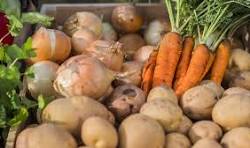
Maraknya Komoditi Pertanian dipasok dari Luar NTT
Maraknya komoditas pertanian yang dipasok dari luar NTT menjadi ironi di wilayah yang sebagian besar penduduknya adalah ...
Testimonial

Victor Fernandez
“Since our family received the Healthy Latrine support from SELAVIP and CIRMA, we no longer need to go outside to relieve ourselves, especially at night. I also learned how to maintain hygiene and care for our sanitation facilities in the right way. For us, this support is not just a toilet—it is comfort, health, and dignity for our family here in the Lospalos Resettlement, Oebelo Village.”





